// check whether user logged in
if (user.loggedInSince(date))
// increase activeUserCount
activeUserCount++;Maintenance
What to do with comments
when code changes?
nothing ⇝ may cause confusion
update ⇝ takes time
delete ⇝ wastes past efforts
Whatever schema you decide on
maintenance is critical!


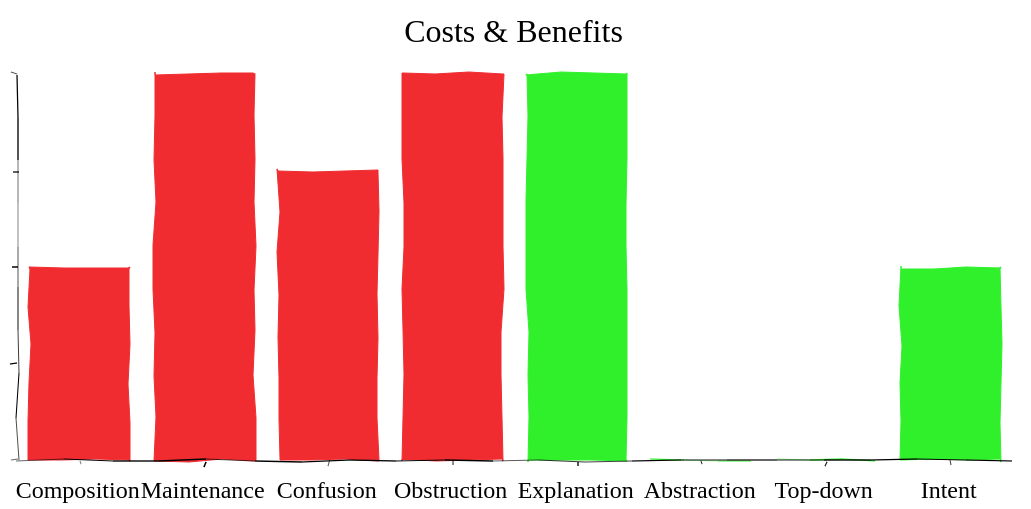
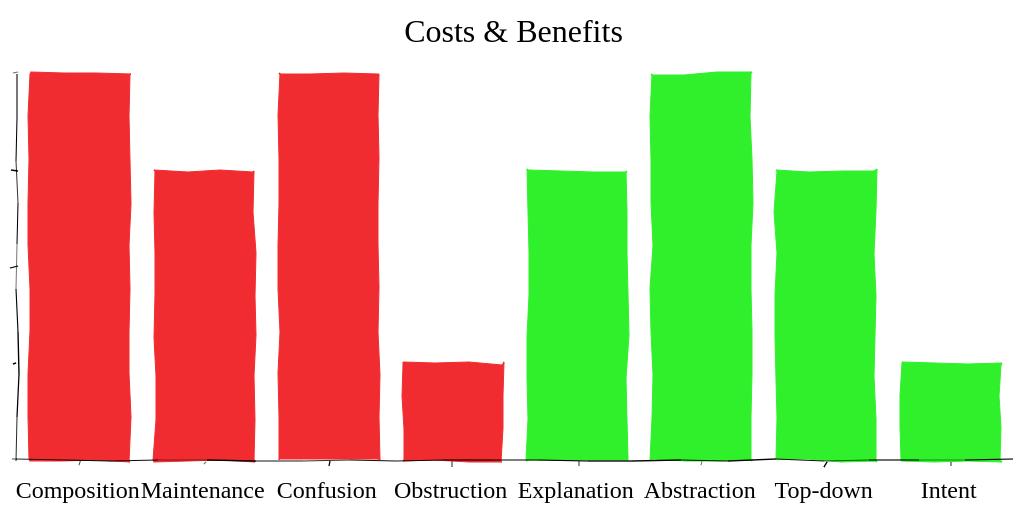
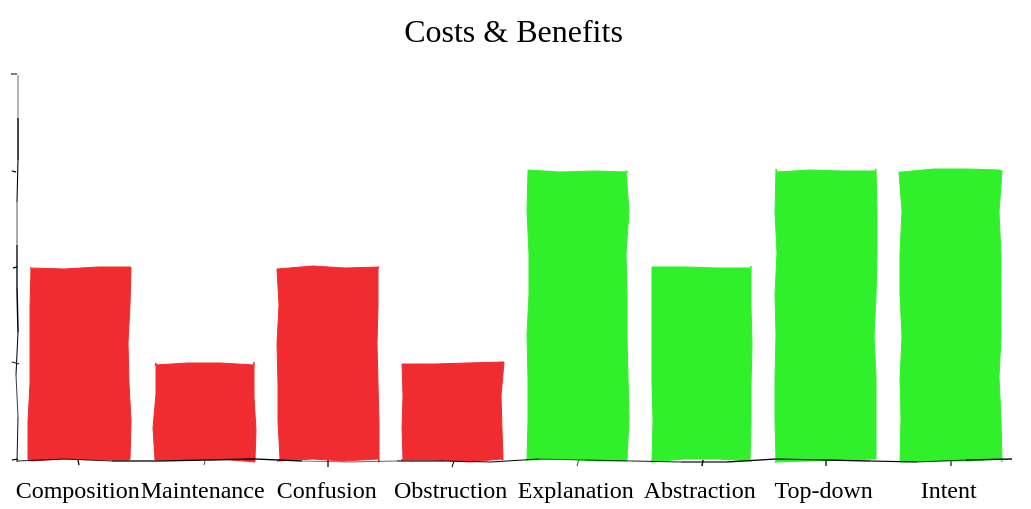
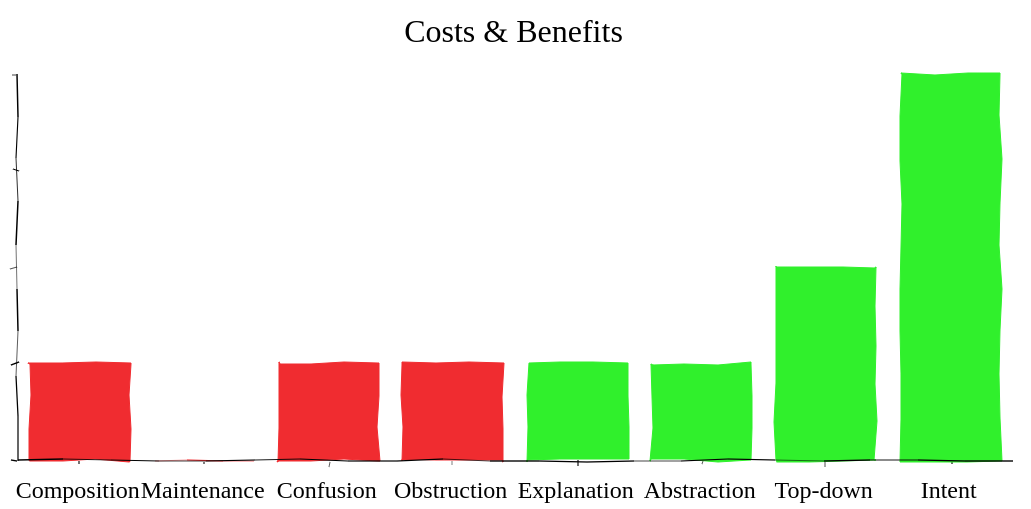
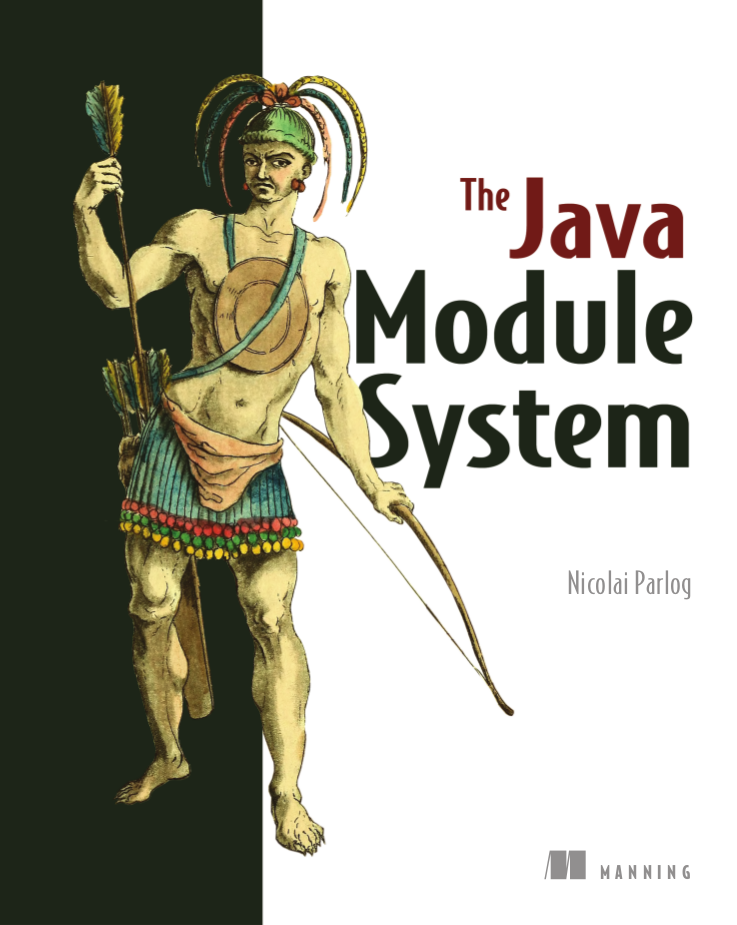
Comments are hard